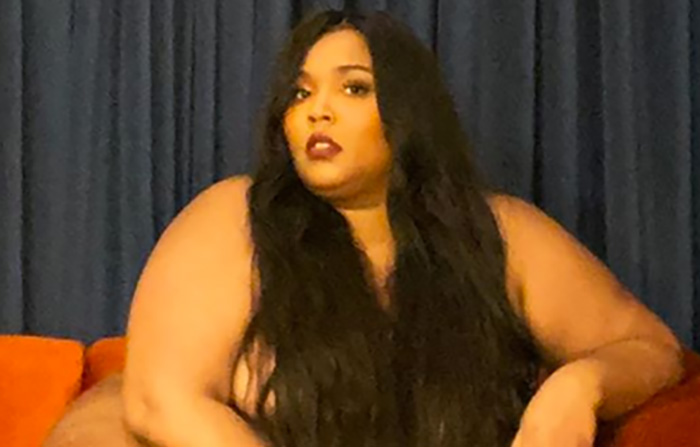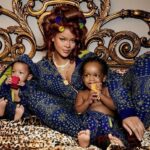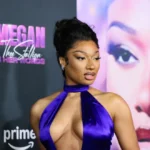How real is Nicki Minaj? Is she a doll pulling her own strings to satisfy the appetities of her Barbie brigade and alpha male following? To a point. Is she the evloution of the female MC—quirky, fashionable, talented? Arguably. Here’s what’s certain: she’s a work in progress. And the final product might not be what you’re expecting.
IF NICKI MINAJ had her way, she’d be at home watching reruns of Judge Judy right now. Instead, she’s a few miles west of her new Los Angeles apartment, at the W hotel in Westwood. It’s a stunning hilltop property, but on the L.A. cool matrix, this W rates pretty low. The other one is on the Strip, and it’s a hot spot. Which means it’s not a good place for Nicki these days.
She’s not sure when exactly it happened, but going out has become a drag. Used to be she’d slip on a pair of jeans, hop in her white BMW and go to house parties to flirt with older guys. Now it’s Lamborghinis, industry dudes and paparazzi. She might buy popcorn for someone at the movies and the next thing you know, people think she’s dating him. Or she might walk out of a nightclub holding hands with Diddy and have people think she’s dating him.
“People don’t get when you’re off, or you’re having a bad day,” she says, obliquely referring to the photograph that bounced around the blogs of her hand-in-hand with Diddy, looking especially miserable. The speculation was inevitable: Had she been crying? Was she just tired? Are they doing it?
None of the above, it turns out. Nicki just doesn’t like going out anymore. Today we’ll try, though. “It’s good for the story,” her publicist tells her. “Is it good for the story?” she asks me with a wry smile.
This part of being a rapper— the part where you’re on the brink of superstardom, where everyone wants to know what you ate for breakfast, where requests for verses come in daily from the world’s biggest pop icons and where journalists want to do novel things with you to create good scenes for their articles— is new to Nicki.
Until last year, she was a not-so-regular girl from Queens, New York working the mixtape circuit. Lil Wayne had already decided he wanted to sign her, and they’d worked together on her third mixtape, Beam Me Up Scotty, but outside of in-the-know rap circles, it’s not like her phone was ringing off the hook. Last August, Nicki signed to Universal Motown Records through Wayne’s Young Money imprint and within a few months she had recorded and shot videos for “Lil Freak,” “Shakin’ It 4 Daddy” and “My Chick Bad” with Usher, Robin Thicke and Ludacris respectively. She even recorded “Up Out My Face” and she shot a video, a white-and-red explosion of a thing, with Mariah Carey.
In just 10 months, she has been catapulted from the culty fringes to the majors, nailing a provocative public persona as popular with rap’s tough guys as it is with teenage girls— all before her first album is even close to completion. She’s also garnered the support of the three biggest names in rap: Kanye West told her he was blown away by her style; Jay-Z is the reason Thicke chose her for “Shakin’ It 4 Daddy”; and Lil Wayne is her “sensei,” as she likes to say. As if that wasn’t enough, she is no longer with her longtime manager Debra Antney and, if the rumors are true, has acquired a considerable upgrade, at least in a marquee-name kind of way. According to reports in April, Nicki started working with Diddy and former Violator Management heayweight James Cruz, who helped market 50 Cent, Missy Elliott and Busta Rhymes to mainstream America.
The backup is important to Nicki, who finds herself at a crossroads. Some parts of the music business she loves. She adores her fans, especially the girls. She sends them tweets, signs their boobs at shows she even shares her Harajuku Barbie nickname with them. In Nicki’s world, anyone who loves her can be a Barbie, a clique of silly, hot girls who amuse themselves by putting on weird outfits and airs and voices.
There’s a lot she hates, too. The trappings of fame— neighbors calling her mom for gossip, wearing uncomfortable shoes every day, going to overheated clubs and having cigarette smoke blown in her face—she could do without. And then there’s that vocal army of detractors, many of them other women, taking shots at her in the press.
“She reminds me of Lil’ Kim,” Pepa from storied rap duo Salt’N’Pepa told VIBE. “Bold and you know . . . but to me she hasn’t learned the message yet.”
“She has a lot of doubters,” says Ludacris. “But the people who say negative things or fear her don’t understand her.”
“I see this as a great opportunity for every female rapper,” says Nicki, pressing her back into the couch. She’s said that in almost every interview she’s done, only this time there’s a “but.” “But I don’t feel like they’re appreciative, so I’m done. I used to do it for everybody and now I don’t. It’s sad, though, because people take the fun out of it.”
Nicki hasn’t been to media training yet— that’s next week— but she knows better than to pick fights and name names. She’s still getting used to talking about herself for hours at a time, but she certainly looks camera-ready. Like other L.A. girls, she’s in a Robin’s Jean phase. Today it’s blue motorcycle skinnies that look like leather but feel like felt. There are angel wings embroidered above the back pockets, drawing the eye to a part of the body that, when you’re looking at Nicki Minaj, would be tough to miss anyway. “Do you know some of them cost $900 now?” she says.
Still, her publicist is never too far away: “Who’s hungry?” she says, bursting into the room with her handbag. “Because I am starving.”
OVER LUNCH, NICKI grabs her laptop and slides in a CD. A Swizz Beatz track swells and in comes her familiar, adorable, Queens voice. There are no accents or guests. It’s just Nicki, alone, over a top-drawer beat. She sounds almost somber, and then the hook comes in and she’s . . . singing. No Auto-Tune.
“James!” she barks. James Cruz is on the phone. “Did you hear the hook, James?”
“Yeah, what about it?” he says, covering his BlackBerry.
“It’s me! I’m singing!”
“I knew that. I just wanted you to say it,” he says.
“Do you like it?”
“It’s a great pop record.”
Oh dear. Pop is a dirty word in some hip-hop circles, and within her cabal of A-list advisers, there’s some discussion these days about whether or not Nicki is at risk of going too pop. Too out there. Too Lady Gaga.
“With this album, you got people saying ‘Oh that might be too pop for you,’ or ‘That might be too dance for you,’” she says later. “And I just started meditating on what makes them say that. I think people say those things just because of the past. I have to invent something, to show that a girl can rap over any kind of beat and still be hip-hop.”
Conventional wisdom says that in order to succeed as a female MC you should write songs about how good you are at sex before you throw them a curveball, if you throw them a curveball at all. Nicki has done the sexbomb thing, to be sure. She posed like Lil’ Kim for her second mixtape’s cover art (“I don’t like the picture and I don’t like to talk about it”), she until now let rumors of her bisexuality fester (“I don’t date women and I don’t have sex with women”) and she’s done collaborations where she’s the girl-kissing freak (with Usher), the temptress (with Ludacris) or the stripper (with Robin Thicke).
But she has mixed feelings about all that now.
“When I grew up I saw females doing certain things, and I thought I had to do that exactly,” she says. “The female rappers of my day spoke about sex a lot. . . and I thought that to have the success they got, I would have to represent the same thing. When in fact I didn’t have to represent the same thing.”
So perhaps that’s out. What about cartoon-character Nicki?
“I’m not abandoning the funny voices. I just did a crazy tribute to ODB’s ‘Shimmy Shimmy Ya,’” she says, perfectly impersonating the late Wu-Clansman. “But it’s coming up more with the album. I had a teacher in elementary who would stand on her table and whisper. We’d all turn around like, ‘What is this lunatic doing?’ But she would achieve what she wanted. She wanted us to stop talking and listen. I feel like I need to mellow it down so people can hear what I have to say.”
“She has to find her thing,” says Robin Thicke. “It’s hard to know what to do when you can do anything. She could do dance, she could do hip-hop, she could do street, she could do gutter. She can do whatever she wants.”
It would be two years, though, before Nicki made it to New York. At first she was thrilled. “Very thrilled,” she says, “until I saw it wasn’t all it was cracked up to be.” Nicki’s father was already in the grips of a crack and alcohol addiction.
“I thought we would just be happy, but with a drug-addicted parent there is no such thing as being happy. When you have a father who is stealing your furniture and selling it so that he can buy crack, you suffer. You come home from school and your couch is gone. You’re like, ‘What happened?’” For a while she kept a diary, but one time her dad found it and read it, so she stopped.
On “Autobiography,” from her 2008 mixtape Sucka Free, Nicki’s most personal song to date, she talks about the time her father tried to burn down their house while her mother was inside it.
“They shoulda thrown the book at you,” she raps, “because I hate you so much that it burn when I look at you.”
“All my dolls, all my stuffed animals, all my pictures are burnt,” she says today. “I was one of those kids that kept all that stuff. I cared a lot. I swear you’d have to hypnotize me to get me to remember some things that happened. I think psychologically I blocked them away.”
Judging by her first street single, “Massive Attack,” the Sean Garrett-produced track that left a lot of people scratching their heads, it seems as though she is still figuring that out. It’s the kind of song that makes you feel old— like you’re missing something that the kids on designer drugs might understand. Or maybe it’s just not a very good song. Either way, the response has been lukewarm at best.
“‘Massive Attack’ was the record she wanted to go with,” says Garrett, sounding a little defensive. “I think it’s a different sound. She wanted to make a statement. She definitely has a different direction for her album and her career than where most people think she wants to go.”
Ask Nicki how she feels about the response and she looks away before answering.
“It was important for me to do something not everyone thought I was gonna do . . .People close to me have their preferences,” says Nicki, lowering her voice, “their favorite Nicki thing, and I have to stand up sometimes and block out the noise.”
Nicki is getting a little restless. We’re supposed to go to the spa later for manicures, but that’s hours from now and it turns out they don’t do acrylics.
“You wanna go see the Koreans and get a fill?” asks her publicist. “Just down the street.”
“I did an interview once like that and it was really loud,” says Nicki.
“You wanna get a Jamba Juice? Get a healthy drink?” asks the publicist again. Nicki doesn’t like pulp in her orange juice and besides, she brought her own Tropicana. We’re not going anywhere.
LONG BEFORE ALL this, Nicki was a little girl in Trinidad who missed her mom. Born in 1984, Onika Tanya Maraj spent her first five years in a clown-car of a house, full of cousins and friends and animals. Her grandmother ruled the roost and, between the ages of 3 and 5, was Nicki’s stand-in mom. Nicki’s parents would send for her later— once they were set up in Queens.
Like lots of people awaiting entry to the United States, Nicki idealized what her life would be like once she got to New York. Whenever her mother would visit, she would sneak into the bedroom, dress herself and pack up all her belongings.
“I would sit there and wait for her to leave, knowing that if she sees that I’m dressed, she’ll take me with her.”
By junior high, Nicki was the kind of scrappy, pretty, determined teenager who could drive a mother crazy. She went to Elizabeth Blackwell Middle School 210 in the Ozone Park area of Queens— a school that was known for “being big and being bad.” There, Nicki got in fights a lot. If her friend was having a problem with another girl, she’d get in the middle. “What’s the problem?” Nicki would say, and the next thing she knew, her nails were tearing into the other girl’s neck and chest, her shirt ripped off, boobs out. “She was Puerto Rican, too,” says Nicki, shaking her head about one incident. “So you could see every scratch.”
Nicki has never had a hard time getting attention. At LaGuardia Arts, the performing arts magnet school in Manhattan immortalized in Fame, Nicki was hard to miss. She was loud and friendly and a little intimidating. The boys wanted to be her friend because she was pretty and funny, and the girls wanted to be her friend because it was no fun being her enemy.
“Her friends were kind of like the mean girls,” says a former classmate. “You got the sense when you walked past her that she was talking about you or had some kind of joke going on. But I wouldn’t say she was mean. . . . You could tell at LaGuardia what someone’s major was based on their behavior, and Nicki was definitely a drama major.”
Perhaps, but when Nicki first heard about LaGuardia, it was singing that interested her. She already played the clarinet and the idea of going to a school where you could sing all day sounded like heaven to her, in a “what’s the catch?” kind of way. The catch was that she was hoarse the day of her audition.
“I knew I’d flunked miserably,” she says. “I was crying and embarrassed and I didn’t want anyone in the school to see me. I just wanted to go home. That was the first time in my adolescent life where my mother put her foot down. Normally I made the rules.” Her mother insisted she go through with the drama audition, so she stomped to the basement, walked into the auditorium, and then something remarkable happened.
“You know when you’re doing something you were put here to do, and there’s a moment when it’s so easy. And you’re like, ‘Wait, not everyone can do this?’” The next thing she knew, she’d been accepted to the drama program.
After high school, Nicki had two things on the brain. First, she wanted to make sure she had a job, because a job meant she could afford her own apartment and that white BMW she had her eye on. Second, she wanted to make rap music.
One of her jobs was serving biscuits and shrimp to jerks at Red Lobster in the Bronx for $12 an hour. She hated it, but she always found a way of amusing herself and the other waitresses on her shift. One time, on an especially busy night, she was rushing to get some plates to a table and one of her super-long nails popped into a customer’s salad.
“Our manager said ‘Look at this, Onika. This is not good,’” recalls a former coworker. “And Onika goes, “Damn, I know! I can’t believe I just broke my freaking nail!’” That didn’t get her fired, though. She was fired for following a customer into the parking lot, knocking on his car window and giving him the finger. “He stole my pen!” she says cackling. “I gave him the pen to sign the credit card slip, and I was gonna show him: I will lose my job for a pen. So I chased him into the freaking parking lot. Who does that?!”
The hardest part about getting fired— and Nicki always got fired— was telling her mother she would have to come back home.
“I never wanted to accept that I was not ready to live on my own. My mother would call. I would be like, ‘Everything’s great!’ But I wouldn’t have food in the refrigerator. I refused to ask for anything.”
They still talk every day, but the timbre of the calls has shifted.
“Now it’s ‘Hey, can you buy me a house?’” Nicki says with a weary laugh. “It’s a completely different conversation. In such a short space of time, everything changed.”
All the while, she was making music. The guys she hung out with in Queens all rapped, and at first they just wanted her to sing their hooks. “I hated doing anything that made me seem like a girl at that time,” she says. “I wanted to be as strong as the boys and as talented as them and I wanted to show them I could do what they did.” She’d save up her money for studio time, record songs and then drive around the neighborhood in her BMW playing her music. “They always took notice,” she says.
Other people took notice, too. First was Fendi, a Brooklyn street-rap guy who discovered Nicki on MySpace and signed her to his underground label Dirty Money. On a DVD called The Come Up, which featured Lil Wayne on the cover, she rapped over The Notorious B.I.G.’s “Warning.” The ballsiness of the choice made people talk. It created buzz. And most important, it got the attention of Lil Wayne.
IT HASN’T BEEN a cakewalk. It may look like a lot of fun given all the curious wigs, affected accents and boob signing. But when she isn’t busy putting on airs, Nicki is very serious and hardworking.
“Focused, man,” says Ludacris of her on-set work ethic. “She has high expectations, so there’s no time for games.”
 Like anyone, though, she makes mistakes— like that time she skipped town while Young Money was recording in Miami to do a solo show she’d forgotten about. To be fair, Nicki had her own career to worry about, and a prior engagement is a prior engagement. But it’s not every day Lil Wayne asks you to hang around and record a top 10 hit in the making. It was an early blunder, and when she got back to town, she got the bad news: Wayne had kicked her off the song “Bedrock.”
Like anyone, though, she makes mistakes— like that time she skipped town while Young Money was recording in Miami to do a solo show she’d forgotten about. To be fair, Nicki had her own career to worry about, and a prior engagement is a prior engagement. But it’s not every day Lil Wayne asks you to hang around and record a top 10 hit in the making. It was an early blunder, and when she got back to town, she got the bad news: Wayne had kicked her off the song “Bedrock.”
When Nicki was a little kid and her mother told her she couldn’t do something, she’d go to her room and makes lists of all the reasons she could. She’d then present it to her mother until she got her way— which is exactly what Nicki did with Wayne. Holed up in her hotel, Nicki wrote three new verses, thinking that if she presented Wayne with all four, he’d have to like one of them.
A couple of days later, Wayne summoned her to his house for dinner. They sat at an enormous table in an enormous room and made small talk while Nicki picked at her food. She was careful not to be too peppy, she says. ]
“I thought if at the end of the night he doesn’t like any of my verses, I’m going to be very, very pissed off.”
Once their plates had been cleared, Nicki stood up and delivered her first verse.
“He loves this, by the way,” Nicki says with a laugh. “He loves torturing people. He loves being the boss.”
So she stood up and delivered her first verse, then the second.
“‘Okay I get it, let me think, I guess it’s my turn/Maybe it’s time to put this pussy on your sideburns,’” she sings. “And as soon as I said that he smiled because I was talking to him. Wayne has those infamous sideburns, and I knew that would make him laugh. Then, when I got to the last line ‘And I just be coming off the top— asbestos’ he looked to the side. And then looked to the other side. And he looked up to the ceiling and he smiled because he got it. And he was like ‘Yeah. Yeah. Yeah.’ So I did the third one but he wasn’t impressed, and at the end I was like, ‘So I can record it? I can lay it down?’”
Wayne said yes, and Nicki, elated, booked it to the studio. She likes to record verses dozens and dozens of times before she’s happy with them— “sometimes the tone is just wrong”— and she wanted to make sure she’d have enough tries before Wayne got there. Because once Wayne shows up, it’s his call. If he says it’s done, it’s done. Thankfully, by the time he got there, she’d recorded something she could live with.
“Congratulations,” Wayne said. “You made the single.”
NICKI MINAJ IS in a bathrobe reapplying her M.A.C Pink Nouveau lipstick. It’s the same color she wears in the “Massive Attack” video and it’s easy to see why she wears it. The color bounces off her complexion and her blindingly white teeth in a way that’s hard to pull off, but looks killer if you can.
We’re at the spa on the second floor of the hotel. She just had a little rubdown, but Nicki doesn’t like spas, and massages kind of stress her out.
“I had to tell her three times to stop hurting me,” she says to the mirror. “She was nice though, but my back feels the same.”
Nicki excuses herself to change and reemerges looking refreshed and relaxed. Over margaritas, Nicki grows ponderous. “What is my thing?” she says to no one in particular. James Cruz is here, and so is her publicist. Across the table is Safaree, a tall, very handsome guy who wears many hats in the Nicki Minaj universe. He’s her hypeman, her bestie, her assistant and he was rumored to be her boyfriend. His presence seems to relax her.
She hates shopping. She hates the spa,” says Cruz. And we already know the girl doesn’t like going out.
“She had a Lamborghini arrive on a flatbed for her and she didn’t care,” says Safaree, referring to the white bullet she whipped around in at BET’s Spring Bling in Miami.
What is her thing? It’s a funny question for someone whose thing seems so specific and well defined already. “I like playing dress up,” she says. “When I do my voices and faces, I don’t think about anything. My mind stops.” It’s that feeling she got at her LaGuardia Arts audition. That feeling she gets when she’s with her fans. That feeling she gets when she’s onstage.
She also gets it from singing.
“Safaree always says to me the reason I don’t like anything I do is because you don’t like rap,” she says. “I’m like, ‘I love rap.’ And he’s like, ‘When you hear a beat, you sing first.’ It’s the oddest thing.”
The girl guesting on everyone’s singles and bouncing around onstage in bizarre outfits is only a small part of the real Nicki. It’s what got everyone’s attention, but is it just marketing? “There’s a hell of a lot we haven’t seen,” says Ludacris, “but it’s almost like she’s planned it. She’s only given the world but so much of herself and she’s going to strategically give the world as much as she wants to at a time.” Maybe. Or maybe she’s making it up as she goes along, seeing what works and then running with it.
For now, Nicki’s got work to do. It’s almost 8 p.m. and the hotel bar is starting to fill up, which means it’s a good time for her to get out of there. Besides, Christina Aguilera is waiting for a verse, and Nicki knows an opportunity when she sees one. She lingers a little, waiting for her car and her bags. She thinks she might have left her shoes in the room. But when the moment strikes her, she’s out of there. She’s not about to keep a big star waiting.-Vibe

![Da Brat Marries Judy Dupart on 2.22.22 [PHOTOS]](https://hiphopucit.com/wp-content/uploads/2022/02/1645669184565-440x264.jpeg)
![Drake Reveals Photos of His Son Adonis [Photos]](https://hiphopucit.com/wp-content/uploads/2020/03/Drake-and-on-Adonis-HHUCIT.jpg)

![Megan Thee Stallion – “BOA” [NEW VIDEO]](https://hiphopucit.com/wp-content/uploads/2024/05/Megan_Thee_Stallion___BOA__Official_Video__1_12_screenshot-440x264.jpg)
![Doechii Feat. JT – “Alter Ego” [NEW VIDEO]](https://hiphopucit.com/wp-content/uploads/2024/05/Screenshot-of-Doechii-and-JTs-Al-440x264.png)
![Young Thug Feat. Drake Drop – “Oh U Went” [NEW VIDEO]](https://hiphopucit.com/wp-content/uploads/2023/07/Young-Thug-and-Drake-1014x570-1-440x264.png)






